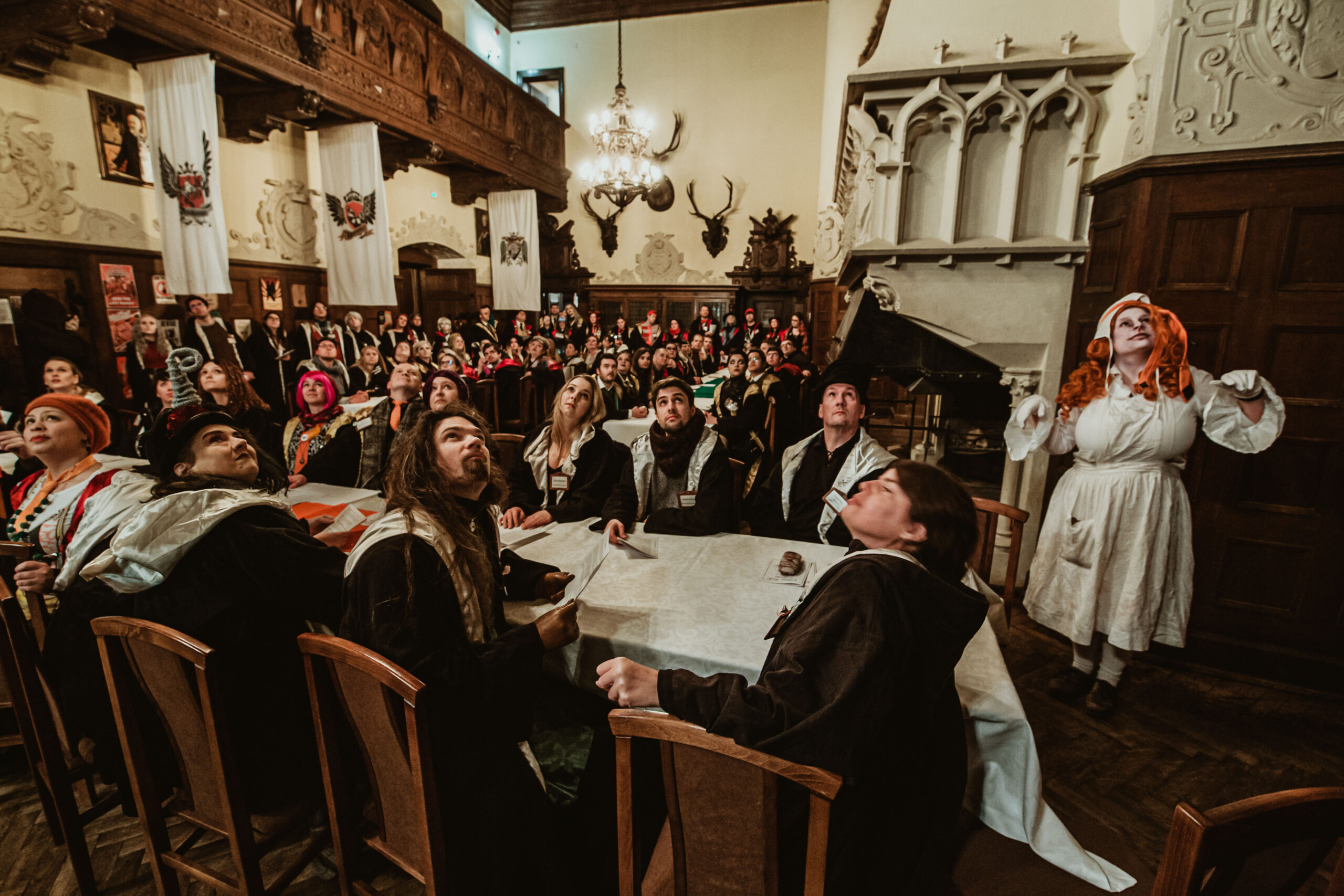
College of Wizardry 26: Casting and Characters
With the theme Back to the Roots we’re aiming for a very classic College of Wizardry run: low-stakes adventures at a magic school. The characters are students and Staff members of Czocha College of Witchcraft and Wizardry, each unique due to their personality, ambitions and challenges more than their background. The vast majority of the characters will be human – there have often been a few werewolves among the student body and someone might occasionally have something a bit odd up in their family tree, but at their core the characters are normal people – here to learn, make friends and have a magical time.
Years
Juniors
The new ones at the school, Juniors, need to find their place in a new environment. Most have just finished their basic magical education, and are now excited to see the world of Czocha with all its possibilities. There are lots of rules to learn, places to explore and friends to make, as it’s a fresh start for everyone. Some want to make a good impression in class and gain the favour of the Professors. Others want to impress the older students by participating in the craziest dares. Most importantly, everyone wants to find out to which house they would like to belong, as it will be a huge part of their life at Czocha.
Each Junior will go through the Sorting to find out which House will be their home for the next three years. Their first task is to get to know the Houses, talk to as many people as possible and make sure they make the right impression on the right people. Prefects are of course the ones making the final choice, but the opinions of their Sophomores and Seniors also carry a lot of weight and a recommendation from one of them might be the key to your dream House. On Friday, the sorting interviews are held, and one by one the Juniors go meet the Prefects. The interview will be short, and its contents are a well-guarded secret. So, while you can try to affect your sorting, ultimately the choice is not yours, and you might even end up somewhere you didn’t expect at all. It’s nothing to worry about though, as any House will welcome you as their own and become your new family.
Play a Junior if you want to:
- Enter Czocha being inexperienced, wide-eyed and open to options
- Learn only very little of the world lore beforehand
- Go through the Sorting and have your House chosen for you
Sophomores
Sophomores are starting their second year at Czocha. They are no longer the new kids, and they’re bursting to use their new authority and freedom. Finally, they have new Juniors to act as role models for, and for the first time they are allowed to enter the Dark Forest on their own. Of course, it’s not all fun and games, and soon the new, more challenging classes will show them that they still have a lot to learn. Sophomores are in the middle of the school in many ways: they’re not quite as clueless as the Juniors, but they also haven’t been around as long as the Seniors.
Sophomores love to test the new Juniors in various ways to find out which ones would be the best fit for their house, and to try to influence the Prefects to get the ones they want. The choices mean a lot to them, because each Sophomore will become a mentor to one of their newly chosen housemates. How are they going to guide and mold them? Will they help them with homework or show them all the secret passages? It’s also time to step up and take more charge in your clubs and other social groups. Your second year is the perfect time to start making a name for yourself, test your limits and make sure everyone in the school knows who you are.
Play a Sophomore if you want to:
- Belong to a House from the beginning, but still be on the inexperienced side
- Have a lot of freedom to explore and rebel
- Become a mentor to a freshly sorted Junior
Seniors
For Seniors, it’s their third and last school year, the time to leave their mark on history. They’re at the top of the school hierarchy and proud of it, ready to put cocky underclassmen in their place. They are nearing the end of their studies, but there is still an entire year before they’re fully ready to leave the school and to start a career in their respective fields. Some might have a clear vision of what they want to do in the future, others are still struggling to find their calling. The points game can also get heated as the Seniors want to ensure it’s their House that holds the Trophy for the entire school year before they graduate.
Being a Senior is not only about power, but also about responsibility. It’s your job to make sure that your Prefects find the best possible Juniors and the newcomers learn what it means to be a member of your House. Traditions must be passed on. You will shape the culture of your House, and often you’ll be the first one your Prefects will turn to when they need a task taken care of. You have the chance to set a precedent for those who come after you, whether as a rule-abiding model student or as a scoundrel of epic proportions. What kind of a legacy will you leave behind?
Play a Senior if you want to:
- Be at the end of your studies
- Have a lot of knowledge on how the school and the world works
- Take up responsibility in your House
Prefects
Each of the five houses is led by two Prefects. They’re Seniors chosen for the job for their exceptional qualities, each determined to prove their House is the best. They are the force pulling the House together and supporting its members through thick and thin, listening to their troubles and making sure everyone has things to do. They’re the students with the most power, but also with the most responsibilities.
- Figureheads of the house. Prefects are visible and memorable representatives of the house and reflect its values, each in their own way. They organise house meetings, divide tasks and ensure everyone feels included. They also take the House points game very seriously, and will go to great lengths to make sure their house wins the Czocha Trophy.
- Sorting. The Prefects have the honour and duty to decide which Junior goes to which house. They keep their eyes open and get information from their housemates, and, on Friday, they organise the Sorting and decide which Junior goes to which House. Of course, everyone is out to ensure they get the best, most suitable Juniors, and the competition can get fierce. After the Sorting, they also conduct the initiation rituals with the help of their House members.
- Curfew patrols. Students are not allowed to wander outside after curfew, and it’s the Prefects who patrol the halls and find any troublemakers who are out without a proper hall pass. This is the time when the Prefects are truly feared – no one wants to get caught!
- Winning and losing speeches. When the Grand Opening Ball ends, it’s time to announce the winners of the Czocha Trophy. The Prefects of each of the four losing houses will give a losing speech, and finally, the winning house gives a winning speech. The speeches are short, memorable and raise the house spirit one last time before the game ends.
Playing a Prefect requires active planning and coordination before the larp with your house, other Prefects and Staff members. You’re in charge of the house culture, traditions and many other things. You can plan events, rituals, pranks, songs or anything else you want in order to make your House look like its members and set it apart from the others. It can be busy and chaotic at times, as everyone looks up to you and seeks your help, but you can always rely on your co-Prefect, the rest of the Prefect team and your House members. The organisers will also always be available to help you both before and during the game.
Play a Prefect if you want to:
- Lead your house, sort the Juniors and take responsibility
- Plan, coordinate and make decisions before the larp
- Be a playmaker other students will look up to
Staff members
Professors and other Staff members are the backbone of the larp. With the leadership of the Head of School, they teach various magical subjects, organise extracurricular activities, and guide students to become extraordinary witchards. They are at the top of the school hierarchy, both loved and feared by the student body. Some of them act as Monitors for different Houses and Paths, being their closest contact to go to in case of trouble. They also have the power to give and take House points, so staying on their good side is crucial. They can assist you in a number of areas, but disrespect a Professor, and you might end up in detention! As Staff, you will have a big impact on the larp content and what kind of experiences the students will have, but also will have your own stories and relations to explore.
Staff players form a close-knit team that coordinates all kinds of matters related to running the school in the months leading up to the larp. They discuss the overall mood and vision, school rules, lesson plans, and much more. They can also plan extra activities and plotlines if they so wish. Playing Staff means being a playmaker and having more responsibilities than an average player, but help and support from the organisers is always available.
Play Staff if you want to:
- Play an adult character in a position of authority
- Plan, coordinate and make decisions before the larp
- Run classes and other activities for students
Professors
Each Professor teaches a total of six 45-minute classes over two days in their specific subject. The subjects taught at College of Wizardry are Alchemy, Arithmancy, Beastology, Conflux Studies, Herbology, Invocation, Magical Defence, Magical Theory, Mind Magic, Ritual Magic, Runic Magic and Technomancy. The contents of the classes are entirely up to you: there are lots of existing ideas to draw from, but you can also bring in something entirely new. Furthermore, Professors work in cooperation with the helper team, and will generally be prioritised when requesting props and non-player characters for their lessons.
Assistant Professors
Assistant Professors fulfill many different functions, and while they have the least status among staff, they also have the fewest set responsibilities. Sometimes they’re freshly graduated teacher’s assistants, sometimes invited experts holding extra classes on their specific subject. Because of the varying nature of the job, Assistant Professors can sometimes be replaced by other optional Staff positions such as Guardian, School Counselor or Librarian. They are also the first in line to take over any other Staff positions in case of cancellations.
In addition to these positions, the Staff will include the Headmistress and the Kasztelan. The Headmistress leads the Staff, makes announcements from the balcony and has a lot of say in how the school is run. Because of their active role in the planning and Staff coordination, they’re chosen in advance of the general casting. The Kasztelan represents the castle itself, both physical and as a concept. Kasztelan is in charge of the Book of Points, making sure the other Staff members record the points properly and updating the points counters to reflect the current standings. Juniors get a tour around the castle from the Kasztelan and are their responsibility until they’re sorted. For this run, Kasztelan is a supporting character and will be played by a member of the Story Team, ensuring a smooth flow of information between the Staff and the Organisers.
Houses

House Faust
Values: Knowledge, Power, Ambition
Symbol: Dragon
Colors: Blue & Gold
Founder: Johann & Johanna von Faust
Influenced by German culture
The famous Doctor Johann Georg von Faust was a mystery to everyone. He created one of the great grimoires of magic and was known as a tireless and dedicated witchard, always in pursuit of knowledge. In Czocha, however, it is a well-known secret that “Faust” was actually two people, the twins Johann and Johanna von Faust. Together they shared the role of “Georg”, and to this day it is unclear which of the famed deeds should be attributed to Johann and which to Johanna. Even those who know the truth of the twins’ existence only refer to them as one unit, Faust.
Every being and every idea exists because somebody believes that it should not cease. At least, that was a cornerstone of Faust’s philosophy, and the same idea still drives the Faustian students at Czocha. The true reason behind Faust’s power is said to have been a deep and true understanding of the nature of this world: if you truly know the inner workings of something, you can also bend it to you will. To Faustians it is obvious that they need to understand not only the world, but also their own strengths and weaknesses, in order to follow in their Founder’s footsteps. Faustians admire productivity and efficiency–sometimes even to the point of ruthlessness. While those individuals tend to strongly color the outsiders’ view of Faust, that is certainly not the whole truth: the House has also produced numerous wise and gentle leaders and respected researchers. Faustians know that there are many different kinds of power, and many different ways to achieve it.
The Faust family was of German descent – some people specify it further and say that they were specifically of Prussian descent, although that is somewhat more contentious. It is certainly not a surprise to anyone that the German spirit suffuses the House, however. The symbol of House Faust is a dragon, inspired by the Dragon of Wawel that Faust allegedly flew several times. Until 1521, the dragon is said to have lived at the nearby castle of Rajsko, on the other side of the lake. No one knows what happened to it, or what may make it reappear.
House Libussa
Values: Creativity, Daring, Foresight
Symbol: Silver Lion
Colors: Purple & White
Founder: Libuše
Influenced by Czech culture
House Libussa is proud to be the House of the Founder of Czocha, the famous Libussa herself. More a legend than a human even while she was alive, Libussa was known for her rebellious nature and strong will to change the status quo. She brought a revolution with her wherever she went, refusing to see anyone stuck in their old ways. Students sorted in her House still follow her teachings and consider them to be the true creed of Czocha College. Other Houses might boast the deeds of their own Founders, but Libussans know that their own was the first – and that this is their castle.
A certain mischievousness and a sense of wonder are the hallmarks of any good Libussan student, and the House has a predisposition towards gathering a truly unique bunch of individuals every year. It was always said Libussa’s students would rather do things in new and interesting ways than learn how to do them like others did – something that turned out to be both a curse and a blessing. After all, some paths are so well-trodden that it can be hard to stand out and be original. Libussans crave something truly new, something that has not been done before, which always pushes them to be more and more creative and unorthodox in their use of magic. Libussa was also said to be a great seer, and Libussans usually care greatly about their own futures and all the opportunities that are still untapped out there.
The symbol of House Libussa is the Bohemian Lion – the coat of arms of the Czech people, but also a symbol of daring, courage, and power. The roots of the House lie in Czech culture, and it shows – indeed, its Founder had a big part in the creation of said culture. It is said that every Czech is a musician, and many kinds of artists, adventurers and great personalities often find their home in Libussa. It could be said that Libussans fit the modern use of “Bohemians” quite well. But most of all, they take immense pride in doing things in ways that others can only shake their heads at – sometimes in disbelief, but also envy.

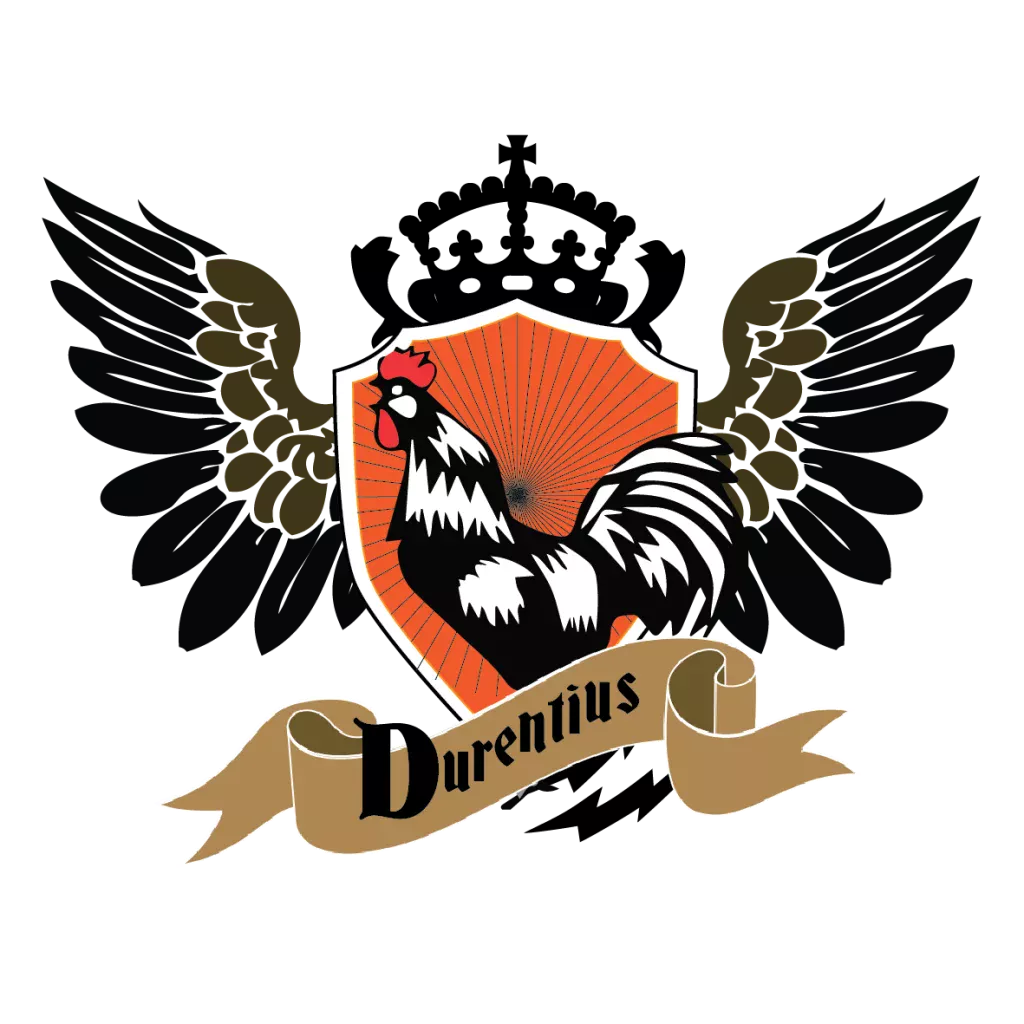
House Durentius
Values: Valour, Diligence, Audacity
Symbol: Rooster
Colors: Orange & Brown
Founder: Durentius
Influenced by Silesian culture
The origins of Durentius, the second of the Czocha Founders, are shrouded in mystery. There are numerous stories and legends about their true identity, but they are all in agreement that they were a master of magical creatures, a true revolutionary in the field of Cryptozoology creating many kinds of hybrid beasts and bending even demons to their will. Durentius was an unstoppable force, always giving everything they had, and hard work and strong conviction are still trademarks of any Durentian.
The members of House Durentius are known as productive, outspoken and energetic. They’re the stragglers, the odd ones out, the tenacious underdogs who never give in and never surrender. The Durentians are perhaps seen as misfits and intense, but they are a nation unto themselves, each and every one of them. To be a Durentian is to have bloodied knuckles and to be in the thick of it, all the time, every time. Diligence and valour define life in House Durentius, because if you bother doing something, it must be done all the way. Durentians are not just great students, but striving to be the best there ever was. Not just troublemakers, but epic pranksters for professors to remember in their nightmares years to come.
The House symbol is the magically modified rooster Durentius rode all the way to the moon and back again. Whether the legend refers to the real moon or a symbolic counterpart is still being discussed – even internally in the House. While other students make jokes about the Durentius Rooster, most of the House students are amazingly proud of their symbol, referring to it whenever it’s possible. It’s a great symbol of the Durentians and their Founder, after all – who else would be audacious enough to ride a common rooster to the moon?
House Molin
Values: Community, Curiosity, Tradition
Symbol: Golem
Colors: Green & Bronze
Founder: Abraham Molin
Influenced by Ashkenazi culture
Molinians follow the way of the legendary Abraham Molin, a true visionary behind modern-day Arithmancy and Technomancy. They dedicated their life to research, and many fields of magic such as golemcrafting and numerology would be very little without Molin’s groundbreaking work centuries ago. They left behind numerous obscure theories and deciphered writings, many of which remain mysteries to this day. Even how they died isn’t quite certain: some legends claim that the house symbol, Molin’s Golem, is actually Molin himself, or that his spirit still lives within the stones of the castle.
Molin tends to change a lot from year to year, as each generation of students have their own interpretation of Molin’s legacy. These new traditions are added to books kept in the Molin Common Room, even if they directly contradict the writings of prior Molinians. In older times, Molin tended to be a House that kept to itself, but in recent years its focus has shifted to fostering community within the school at large. Molinians believe firmly in questioning everything, letting their curiosity carry them to new and complex understandings of the world. Every number is a riddle, every letter is a question, and every moment is an opportunity to invent something new.
Abraham Molin was from an Ashkenazi Jewish background, though like many Jewish mystics they did not think of themselves as religious. While most Molinian students do not personally identify as Jewish, many Molinian rituals still use visual and symbolic elements of Ashkenazic culture. Jewish members of House Molin delight in opportunities to host events like Shabbat dinners and teach the rest of the school about their culture and heritage.
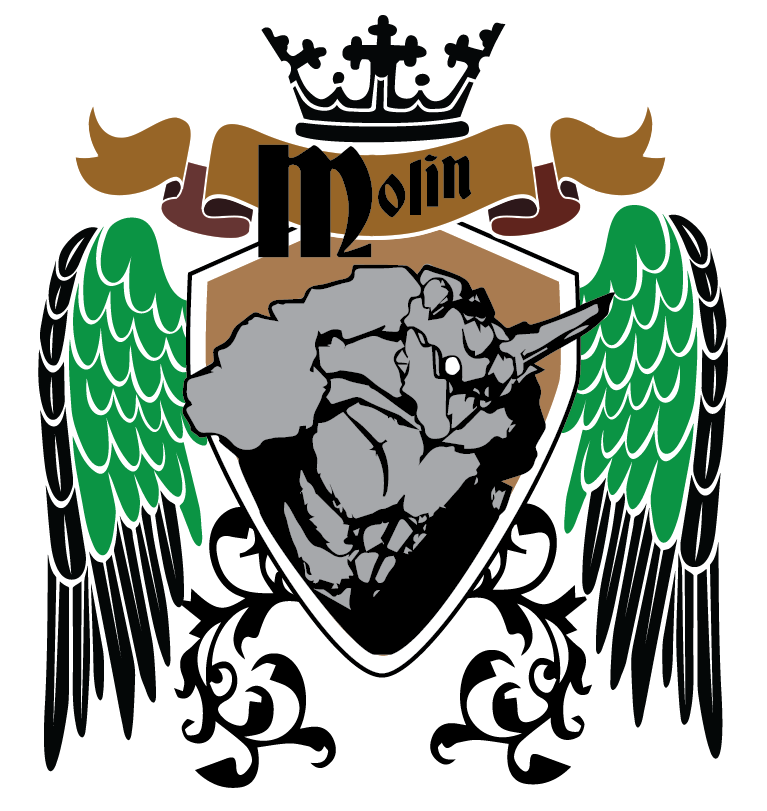
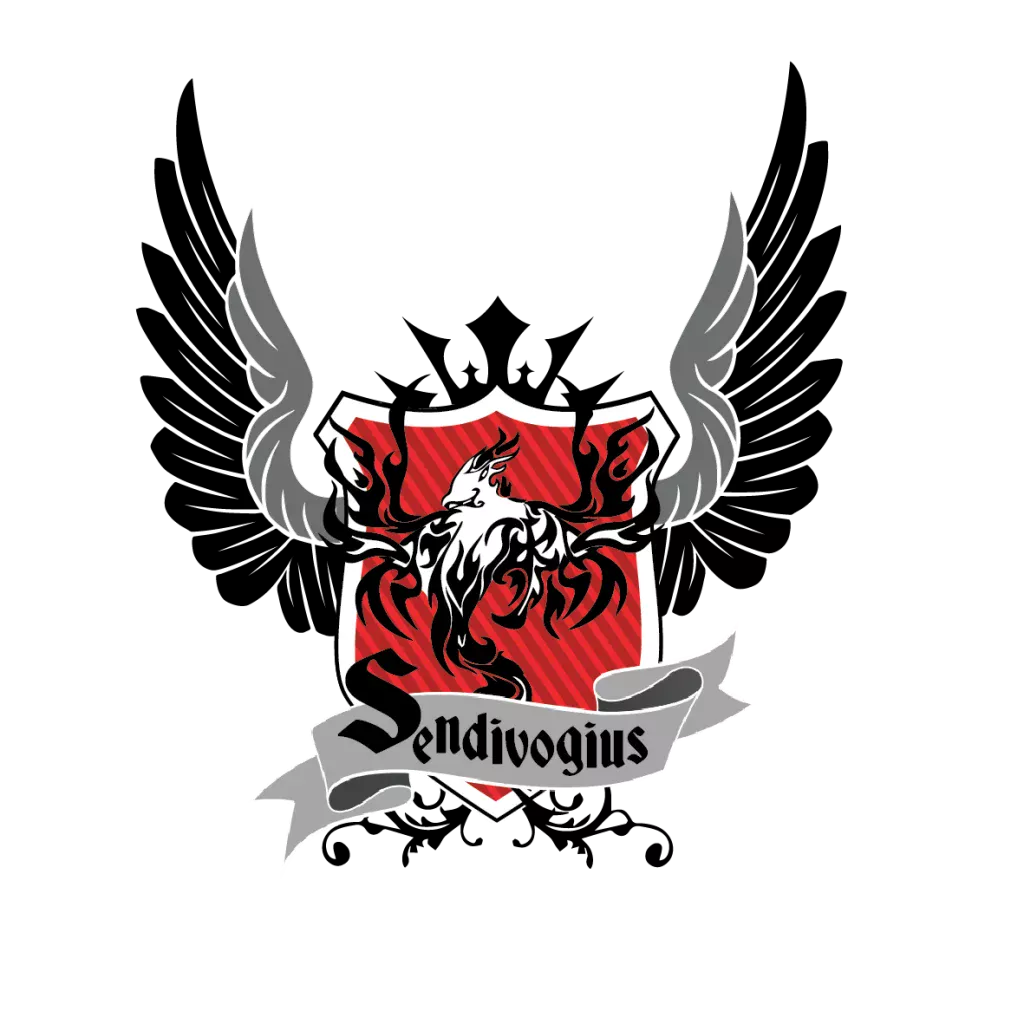
House Sendivogius
Values: Courage, Honour, Diplomacy
Symbol: White Phoenix
Colors: Red & Silver
Founder: Michał Sędziwój
Influenced by Polish culture
The famed Polish alchemist Michał Sędziwój, also known as Sendivogius, was the last of the Founders of Czocha. He arrived when all the others had gone and revived the school back into its former glory. He chose a phoenix as the symbol of his House – after all, with his guidance Czocha truly rose from the ashes. As a nobleman with a big personality and a lauded academic, his work truly took the witchard society huge leaps forward, and his vigour to change the world still lives on in the Sendivogians of today.
The legacy of Sendivogius later formed the identity of his house. Courage, honour and diplomacy are necessary for any witchard dealing with the great powers in this world–some magical and some not. In the beginning the pupils of Sendivogius also gravitated towards disciplines that could be used in the mundane world. Saber fighting, horse riding and court etiquette were seen as just as important as knowing how to levitate. Some of this ideology still perseveres, especially among the House members from upper-class Polish families. Inspired by their Founder, the House has also had multiple skilled alchemists over the years, and trying out Sendivogian potions and other magical concoctions can be quite an experience.
On the other hand, the ideology of phoenixes and rebirth is deeply rooted in the House culture: Sendivogians have a flair for the dramatic and the heroic, the new and exciting. They also believe in new beginnings and second chances, and no matter what you have done in life, among them you will find a place to try again and become a better version of yourself. Being a Sendivogian means being proud of what you are, always trying again and again until you succeed. This often makes Sendivogius a mixed bunch, with both valiant knights and reckless rebels supporting each other in their quest for greatness.
Paths
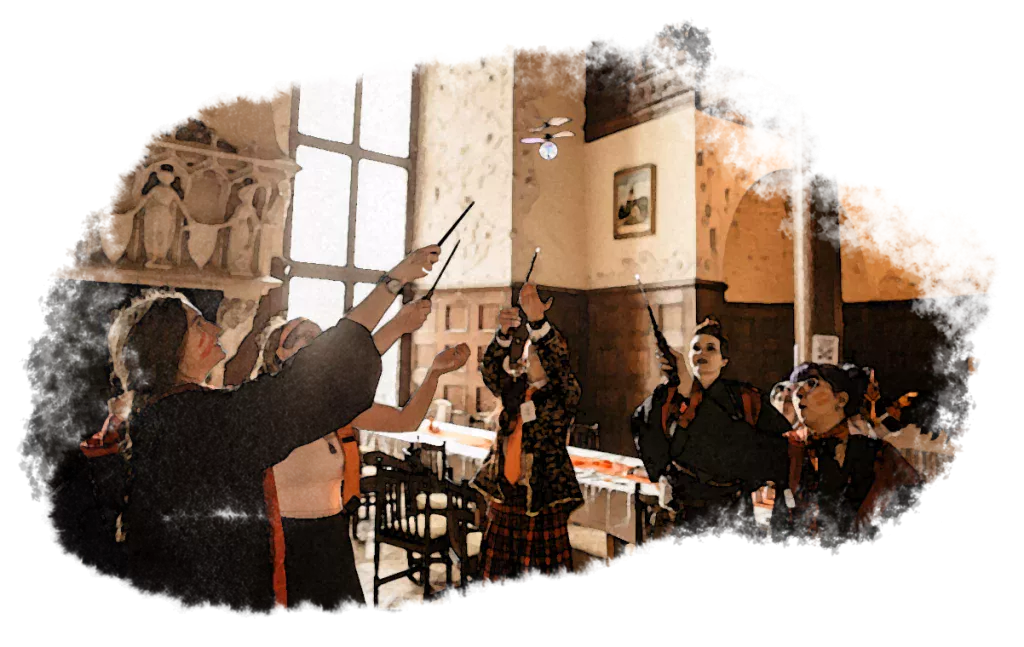
The Artificers
Artificers learn analyzing, building, and repairing magical objects and fantastical contraptions. The field of Artificery ranges all the way from classic enchantments to wand making and golem crafting, and Artificers are always striving to create even better tools and trinkets to aid the everyday life of the witchard society. They deal in the realm of brass and crystal, clay and clockwork, transformation and creation.
Most magical objects that witchards use come from professional Artificers, and there’s always plenty of work in both designing and creating new magic items. Some Artificers concentrate on research, some set up their own artifact business or a repair shop. There are many different methods and principles to Artificery, and different schools of thought are very persistent that their way is the right way. While combining magic with mundane technology has gained some popularity in recent years, there are still many traditional Artificer families who are proud of their old ways and scoff at such modern nonsense.
Artificers study Technomancy, Arithmancy, Magical Theory, Conflux Studies, Runic Magic and Magical Defence.
The Cryptozoologists
Cryptozoology is the study of magical nature, ranging from creatures to herbs and beasts to spirits. The students of this path learn how to identify all kinds of living things, what kind of powers and capabilities they possess and how to deal with them. Cryptozoologists know how to converse with treefolk, which berries to pick for your potions, and how to get out of an encounter with fae unharmed.
Career options for a Cryptozoologist vary widely depending on their specialization. Some end up working at farms, parks and sanctuaries, caring for the local fauna or protecting endangered species. Of course, not all creatures are benign and harmless, so often a Cryptozoologist can end up in more of a troubleshooter position, tracking down escaped griffins and even capturing enraged dragons. A cryptozoologist well-versed in magical plants might open a shop selling potion ingredients, and those interested in non-corporeal and extraplanar creatures could find employment as mediums and exorcists.
Cryptozoologists study Beastology, Invocation, Herbology, Alchemy, Mind Magic and Ritual Magic.
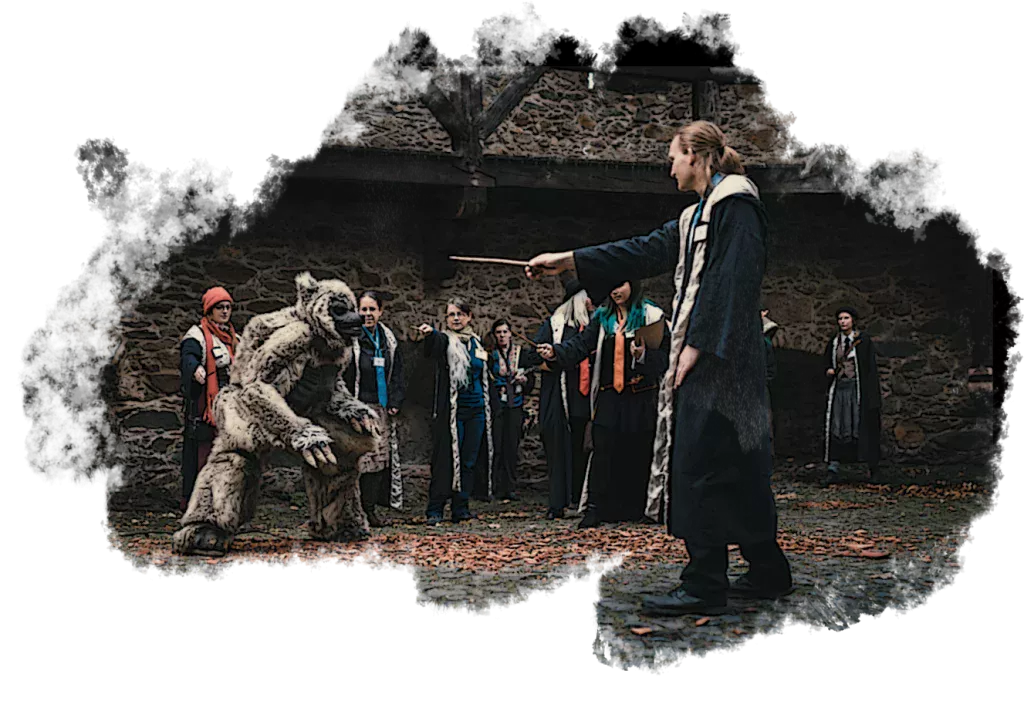
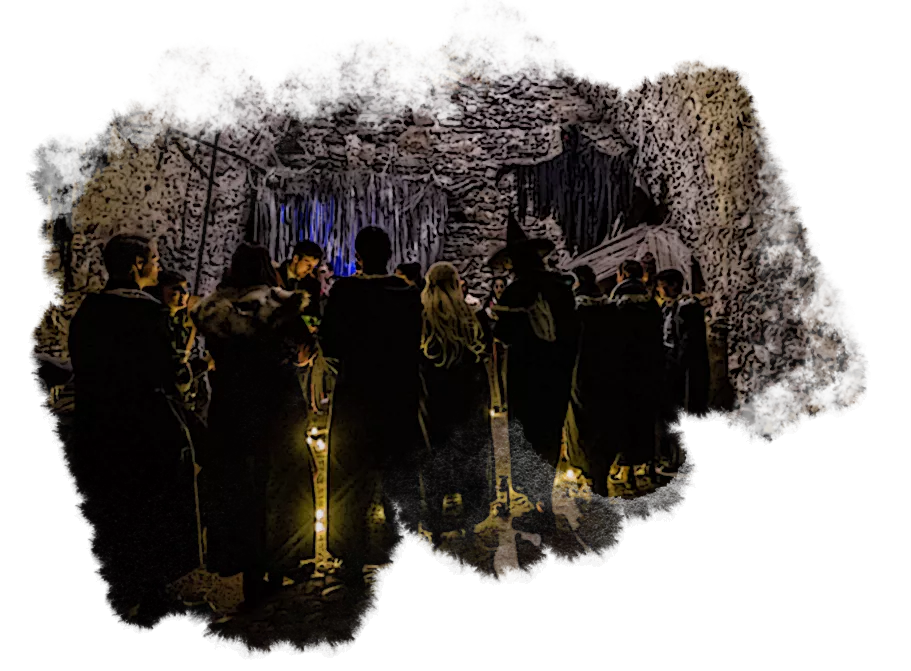
The Curse Breakers
Curse Breakers have an extensive knowledge of how spells, enchantments and hexes work. Got hit by an unfortunate Tripping Jinx? Accidentally touched a cursed amulet and now you can only speak in verse? You’ll need a Curse Breaker. They understand the inner workings of magic, knowing how spells can be altered and deconstructed. Of course, to break a curse you often need to know how it has been created, so most Curse Breakers are also talented Curse Makers.
Curse Breakers are essential in many areas of the witchard society, maintaining wards and other magical defenses, examining and disassembling illegally cursed items, or doing research on how to improve existing enchantments. Some choose more adventurous professions, traveling to forgotten tombs to solve ancient mysteries. An experienced Curse Breaker is sure to have a ton of crazy stories to tell!
Curse Breakers study Runic Magic, Ritual Magic, Arithmancy, Magical Theory, Invocation and Conflux Studies.
The Guardians
Guardians study the skills needed to protect the magical society and keep it up and running. They need to understand the laws and history of witchards as well as the principles behind magic itself. They also have the most extensive education in magical combat, both physical and mental. They know the Traditions by heart and are dedicated to upholding them.
It is the dream of many Guardians to join the Guardian Order and do active fieldwork catching rogue necromancers and other criminals, but there are also many other career options. Most administrative and bureaucratic positions benefit from a Guardian skill set, and whenever new laws or treatises are written, Guardians are almost certain to be present. While the Guardian education is not a requirement to become a politician, it certainly does help. As a result, the Guardian class is often a mixture of hotheaded heroes, ready to rush into action, and future diplomats who yearn to understand the fundamentals of the witchard society.
Guardians study Magical Defence, Conflux Studies, Mind Magic, Magical Theory, Beastology and Technomancy.
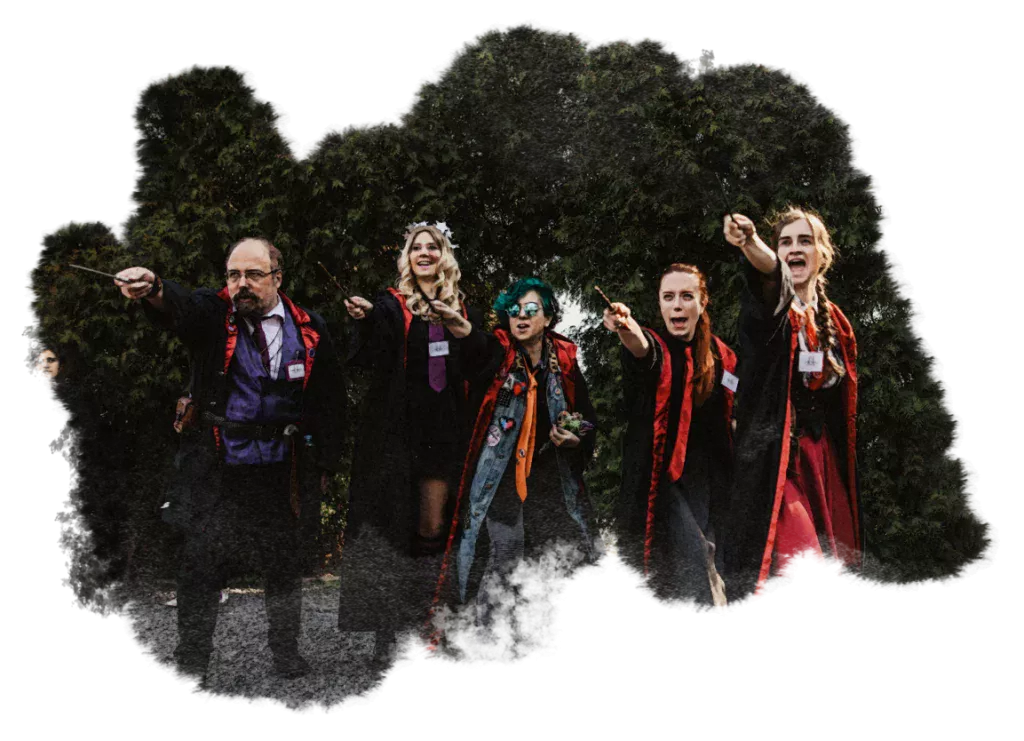
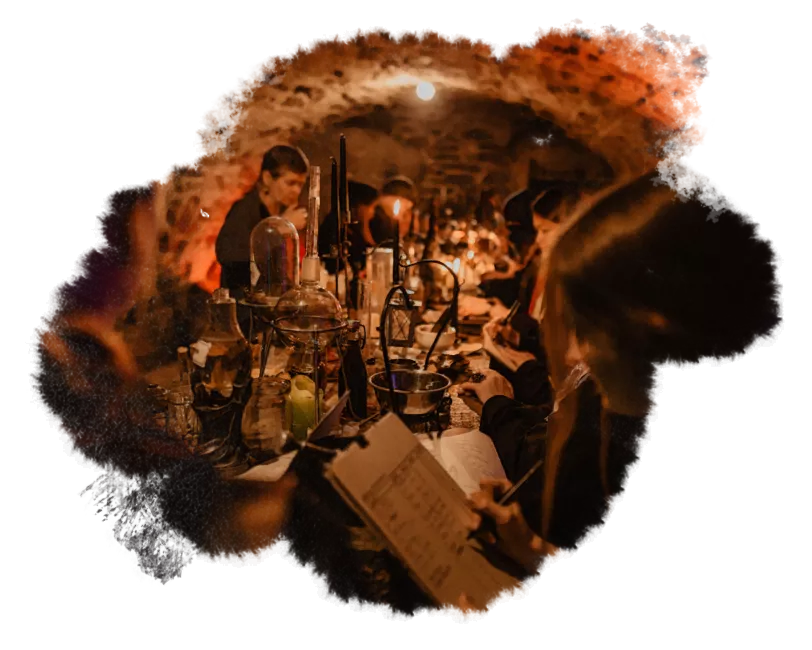
The Healers
The magical world is not a safe place, and Healers are always needed to patch people up when something goes wrong. Be it a botched spell, lost duel or barely escaping from a rampant magical creature, you always want to have a Healer available. Healers learn to diagnose and treat various magical diseases and injuries and understand the workings of both witchard’s body and mind. While it’s crucial for every Healer to know their potions, they also learn other methods of healing such as rituals and runes.
Almost any company, institute or department can benefit from hiring a skilled Healer. Some of them work in large, conflux-governed magical hospitals, others choose positions in smaller institutions such as schools or even set up their own small clinic. Those talented in Mind Magic can also use their knowledge as counselors, psychologists and therapists.
Healers study Alchemy, Herbology, Beastology, Mind Magic, Ritual Magic and Magical Defence.
Clubs and Student Activities
Each character belongs to one of the school clubs. They’re a place to find like-minded individuals, learn new things and show off your character’s skills. Most clubs have one or two meetings during the larp, and some might also have ongoing plotlines or organize larger events like performances or competitions. In addition to the clubs, many students love playing Fireball Dragon and belong to their House team, anxiously waiting for the first tournament of the year.
The clubs can be lead by Staff, students or non-player characters, and their exact contents are determined by the interest of the players. If you’re interested in planning or leading a club, you can present your ideas when you fill out the Player Form. The club leaders will then collaborate with the organizers in advance to plan club meetings and activities for the larp.
Duelling Club
Duelling is said to be the high art of spellcasting, and professional duelling is a widely popular sport in the magical world. The Duelling Club of Czocha is almost as old as the school, founded centuries ago, even before House Sendivogius. It’s an institution rooted in ritual and honor that teaches both the grand gestures and fine details of wand magic, and its members carry themselves with appropriate dignity. They say that any witchard can best an opponent with an onslaught of spells, but the trick is to win with style and composure. Duelling Club is very particular about etiquette, and it’s not uncommon to enjoy a cup of tea alongside a duel. Critics mockingly say the club is for dating rather than wand fighting, and, to be honest, that’s not far from the truth. Good manners and spellcasting skills can very well be just the thing to make an impression, and many members have found their future partner in the club.
Duelling Club organizes practice sessions filled with pleasantries and social codes. Sometimes they practice new spells all together. Sometimes they test each other’s abilities in practice matches. It’s also common for the club members to settle any disputes between them with a public duel – in front of as many people as possible, of course. When the club really wants to show off their skill and superiority, they might even put on a grand tournament or a gala event where everyone at school is allowed to participate. After all, an excellent performance in such an event might pave your way to eventually becoming a professional duellist.
Horse Without Wings
Horse Without Wings is a uniquely Czochan phenomenon and a gathering of some of the most eccentric minds at the school. The club of all things creative at Czocha College, the name of this venerable society is a reference to the punchline of an old joke that nobody can remember. This is where all kinds of outrageous artists and talented souls gather to present new revolutionary ideas, find collaborators and plan new artistic endeavors that will take the school by storm. Do you remember the time they decorated the opening ball with glowing butterflies or the year they produced a whole series of fictional stories about the school and its people? Whatever this club does is sure to go down in history.
The members of Horse Without Wings perform, create and love sharing their art with the rest of the world, and their presence truly makes the school life more colourful. Their club activities vary from year to year depending on what the students happen to be passionate about: some run the school choir, some set up a newspaper, some organize waltz classes in preparation for the opening ball. Do you want to arrange a poetry reading or a performance piece? The stage is yours!
W.A.N.D.
Witchards Against Non-hexborn Discrimination started as a coalition of smaller witchard justice groups fighting hexism, anti-werewolf sentiment, and discrimination against duds born to hexborn families. Over time, W.A.N.D. has become the nexus of progressive student politics at Czocha College, and its members keep the banner flying high against the inequalities pervading witchard society. W.A.N.D. attracts all sorts of firebrands and magic activists from anti-hexists to those opposing cruelty towards magical creatures. Pro-werewolf activists, dud activists and dozens of other tendencies exist under the umbrella of W.A.N.D., and, while the goals of the group might seem unfocused, the truth is that strength comes from diversity, and together they are stronger than apart.
W.A.N.D. members meet up to discuss ongoing issues and to find solutions. They make posters, flyers and badges to advertise their agenda, create petitions to overturn discriminatory school rules and organize debates to draw attention to their viewpoints. If needed, they might even turn to rallies, demonstrations, sit-ins or boycotts in order to get their point across. They also have a never-ending feud with A.R.M., a club that simply by existing represents everything they fight against. They will gladly use any chance to take A.R.M. members down a notch, and show there’s so much more to life than being born into a high-class family line.
A.R.M.
The name of Alliance for Reclaiming Magic stems from the 1800s, when radical measures were needed to oppose the sudden rise of mundaneborn rights. While the club is still the main opponent of W.A.N.D., nowadays these students don’t see a reason to fight with those ruffians – they already have it all. A.R.M. is a society in which the offspring of rich, influential, century-spanning hexborn families can mingle and find like-minded company. Nowhere is it said that the club is only for the old-blooded and hexist, but for some reason only those with proper lineage and politics get invited. On top of that, many of the hexborn Staff members are alumni of the club, which gives the current members a lot of leeway and favouritism. Not all of the students might even notice though, they simply think this is their natural place in the world. The club doesn’t have a single mundaneborn member, though there is also no sensible reason why any of them would want to join. Even if a mixborn or a new blood hexborn somehow makes it in, they’re going to have a rough time proving they really belong.
A.R.M. members are very proud of their long family histories and enjoy letting the entire school know that they’re the ones you want to be friends with. They might eat lunch privately or organize fancy parties where it’s very clear who’s welcome and who isn’t. They also want to stay in power, which is why they generally oppose all kinds of pro-mundaneborn, pro-werewolf and other overly liberal movements. Some more radical branches also remain, ready to campaign for hexist supremacy. Many members engage in heated debates with W.A.N.D. or find other ways to show the superiority of ancient hexborn lineage. If anything threatens their place at the top, they are determined to put the upstarts back in their place.
Ancient Order of Mischief
There are mysteries to be solved at Czocha, and this bunch is determined to solve them all by any means necessary. Ancient Order of Mischief is home to adventurers, truth-seekers and conspiracy theorists, each with their own pressing questions to which they must find answers. They have a reputation for being troublemakers, but their aim is not to do harm. Sometimes you just need to stretch some boundaries in order to find what you need. Discussions about banning the club have been had several times over the years, but somehow they always manage to talk themselves out of trouble. After all, they’re not doing anything illegal. They’re just a bit too curious for their own good. Members of the Order are always walking the fine line between abiding by the rules and ending up in detention, and they’re proud of it. After all, what’s more rewarding than the exasperated look of “Oh no, not them again” on a Professor’s face?
At the beginning of the new school year, the Order is once again faced with a new conundrum. They gather evidence, host nightly excursions to look for clues and try fishing for information from classmates and Professors. The club likes to meet in secret and send coded messages, because you never know when a Professor has finally had enough of “this utter nonsense”. It’s better to stay low, but these brave students won’t let such hindrances prevent them from doing whatever it takes. After all, it’s a matter of pride to solve the first mystery of the year before the Czocha Trophy has even been awarded.
Fireball Dragon
Fireball Dragon is the most popular sport of the European Confluxes. The non-initiated might call it “slightly more complicated dodgeball”, but in truth it’s so much more than that: a beautiful game full of tactics and teamwork. Almost every Conflux has its own Fireball League, and Czocha is no exception. The best players at school are followed by admiring looks and longing sighs wherever they go. Many might dream of becoming professional Fireball stars after graduation, but the competition is tough and only the absolute best can make it.
Fireball Dragon is usually played on both of the first two school days of the year. The first day is for tryouts to scout for promising Junior talent and to recap the rules for those who haven’t played for a while, and the second is for the school-wide tournament. The showdown for the Fireball Cup is one of the best occasions to show House spirit, and everyone gathers outside to cheer for their own team. Each House team needs a minimum of five members. The best Houses are also awarded points for their outstanding performance on the Fireball field.
Secret Societies
Not all clubs of Czocha convene in broad daylight. Some of them are specifically centered around the forbidden and dangerous, and getting caught as a member will definitely get you in trouble. They have been disbanded many times throughout the history of the school, but, each time, some of the members linger and quietly start recruiting again. All details about the clubs and their members are well-guarded secrets, and to join you must have the right connections or be very, very lucky.
Iron Covenant
The Iron Covenant is one of the oldest organisations in the world, and, unlike most ancient orders, they care very little for blood status or lineage. They focus their intentions on the most talented and gifted among witchards, and seek out those with an unquenchable thirst for knowledge. The Covenant’s history is shrouded in mists of lies and layers of deception, and even individual chapter leaders rarely know the true origins of the organisation. It has been the Covenant’s singular mission through the ages to uncover the mysteries of our world and unlock its hidden knowledge.
Members of the Iron Covenant believe that there is no such thing as Dark or Light magic, only the right and the wrong way to use it. While it is true that some of the worst horrors ever unleashed upon the witchard society was because of the actions of the Covenant, it is also equally true that the organisation has kept the world from toppling into chaos on more than one occasion. In many ways, the Iron Covenant view themselves as the finger on the scales, keeping everything in perfect balance, at any cost.
There are many reasons to join the Covenant, but the members are united by their wish to plumb the depths of magical knowledge, their will to wield the power of truly remarkable and dark forces, and their belief that mutual protection from those forces is preferable to working as a lone wolf. Sometimes that belief is not enough, however, and members have been known to disappear without a trace after getting in too deep.
While each chapter operates with almost full autonomy and independence, the Covenant is ruled by a group known only as The Artisans. Occasionally, they will make demands or requests of individual chapters. One would do well to heed their requests.
Fight Club
The creation of Fight Club was a backlash against the prim and proper Duelling Club. Not everyone was willing to go through all the bowing and rituals and have their fighting limited by countless rules. No, these students wanted to get immediately into action and push their limits no matter the cost. Fight Club has no rules, and every dirty trick in the book is allowed. After all, when you’re faced with dark forces in real life or in your work as a Guardian in the field, you won’t have time for a cup of tea. Some people join the club to find an outlet for some internal aggression, while others do it because they want a relatively safe place to practice real combat magic without being coddled by the teachers. Some might just enjoy the thrill of doing something that’s so clearly against the school rules.
The club has no fancy titles or formal hierarchies, and, generally, the one to organize the meeting is the one to say what’s on tonight’s agenda this time. One on one? All out brawl? Something more creative? Of course, the same person is also the one in charge of making sure they don’t get caught. Fight Club usually meets after curfew, as it’s much more exciting that way and teaches people to stay on their toes. On the next day, they might discreetly approach their Healer friends for help, because everything still hurts. Is this really the best way to learn? Nobody knows, but, for the club members, it’s a way of life.
Explorers of the Eternal
The grand name lures many ambitious witchards to join The Eternal. The stuffy, near sleepwalking reality causes most of them to leave early. Most students (and Staff) agree that this is nothing more than a study group for very dedicated students and alumni professors. Tales tell of decorating cakes and a myriad of teapots. And yes, the dress code is night wear (pyjamas or gown), sleeping cap and scarf. It is Czocha’s smallest club, not only because of the dry readings from magical theory books, but also because you need to decode the most intricate puzzles and magically encrypted clues to get to a meeting. Few bother to jump through the hoops.
Some rumours tell of far more exotic concoctions than tea, and altogether more fringe ceremonies than book circles after midnight (when all Juniors are fast asleep). Then again, that’s probably just the book worms and library rats spinning their rep at school.
